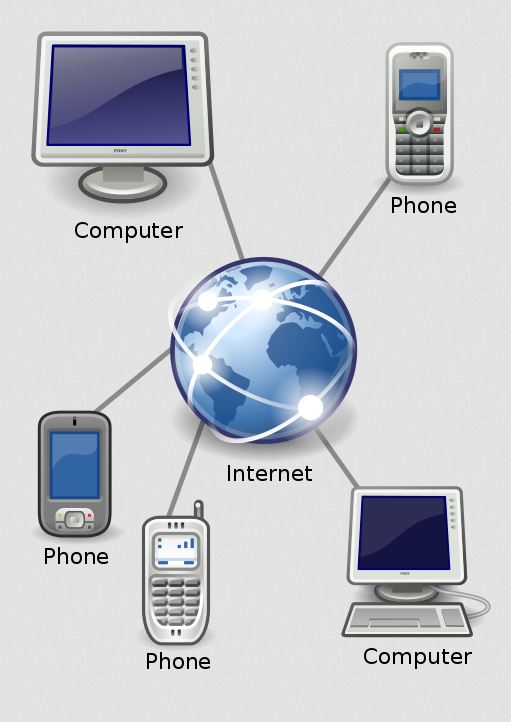With advances in technology, the humble landline phone is no longer as sexy, or as central to business, as it once was. But that’s not to say that it doesn’t still have a role. Many of your customers want to be able to talk to somebody over the phone, rather than through social media, website messaging boxes or email. There’s something nice about being able to hear the voice of another human being at the end of the phone; it often feels a lot more natural than typing something in a box.
Businesses rely on their phones, but they’re yet to marry them with Internet-based technologies en masse. As a result, they’re missing out on using their phone systems to their full potential, losing clients in the process.
What Is VoIP?
VoIP, or voice over internet protocol, is a type of voice call technology that works by using broadband internet connections, rather than standard landlines. And because it’s done over the internet, you get a load more functionality for your money, allowing your business to do more with incoming phone calls – things that just aren’t possible with standard phone lines.
Why Use VoIP?
Integrate Video Conferencing
Many IT solutions and services tout video conferencing as one of the major benefits of VoIP. With VoIP technology, it’s easy to integrate video conferencing software with standard phone services, allowing you and your colleagues to work more smoothly together.
Manage Multiple Client Channels
Clients interact with your business through numerous channels: social media, your website, emails, and phone. VoIP helps integrate all of these by allowing you to provide voice call options across all of them. For instance, you could have a button on your website that will enable customers with a microphone to instantly call your helpline, without having to punch your number into their cell.
Cheaper Than Conventional Alternative
VoIP not only offers businesses greater functionality, but it’s also regularly cheaper than traditional landline services. The reason for this, again, has to do with the underlying technology. Because VoIP uses internet connections rather than standard landlines, the cost of providing network infrastructure is lower. Regular internet fees pay for the maintenance of the network, avoiding the high costs of delivering legacy phone lines. Internet-based services are also often unlimited, meaning that you’re not likely to get hit with high fees if you use the service a lot.
Integrate Email With Voice Calls
Although phone companies developed voicemail services, they’re not exactly convenient, especially when held up against the needs of modern businesses. Accessing customer voicemails required dialing up the voicemail service and then sifting through potentially hundreds of voicemails from customers.
VoIP changes all of this. First of all, it digitizes all voicemails, making them easier to manage. And secondly, because the voicemails are digital, it makes it possible to send recordings via email to the relevant party. If there’s a voicemail from a customer pertinent to a particular employee, all you have to do is find the voicemail file, attach it to an email, and send it off.


No comments yet.